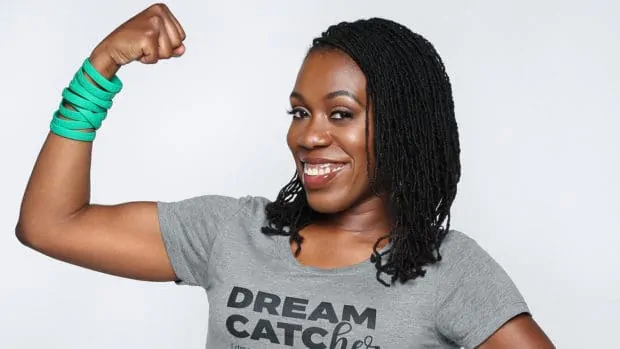On June 1, exactly one week after George Floyd’s death, a distraught Kevin Matthews went on Facebook Live. The first thing he said was, “I shouldn’t be doing this right now.”
“I’m hurt,” Matthews said. “I’m upset. You know what I know: That it’s not fair. And it’s been coming a long time, this frustration that we feel.”
Matthews isn’t a political activist. For the past decade, he’s provided “investment education” on his website Building Bread. He’s also written two books on the topic. But this was the first time he talked about “the deaths of our brothers and sisters by the hands of police officers.”

Why now?
Matthews cited stats that show the unemployment rate for Black men is twice that of white men. Other stats are even bleaker. One example: While average household income in this country is $70,000 pre-tax, for Black households, it’s only $49,000.[1]
These are what Matthews calls “the systemic things that prevented black people from building wealth.” And like his Black peers in the personal finance world, he’s sick of it. But not all of them are taking to Facebook Live. Debt.com asked a half-dozen for their thoughts on what they’re saying – or not saying – to their audiences.
Sa El of Simply Insurance: “I want the conversation to always be there”
Sa El is a gay Black man. His race is obvious, and he talks about his husband all the time.
But El, co-creator of Simply Insurance, said he’s tired of picking a label to fight for. When paperwork asks for his race, he selects “other” and writes in “human.”
“Yes, I’m Black. Yes, I’m gay. Yes, I’m a male,” he said. “But those three things should not dictate everything I do.”

El doesn’t want to be a spokesperson, though he isn’t against others talking about race and money. He just isn’t sure that Floyd’s story should be connected to personal finance, he said.
“I don’t want [my site] to be one of those places that start the conversation just because something happened,” El said. “I want the conversation to always be there.”
Tasha Cochran of One Big Happy Life: “These are not new conversations for me”
The intersection of race and finance always affected Tasha Cochran’s interracial family. But the founder of financial planning advice site One Big Happy Life typically writes about budgeting, not race.
Cochran used to work for the Consumer Financial Protection Bureau reporting to Congress on federal laws that help consumers access credit.

“These are not new conversations for me because that is the work that I’ve been doing for a decade,” she said. “But for Black people in the personal finance media, they may not have felt as able to have these conversations.”
Nicole Hatcher of Frugal Chic Life: “I feel more passionate speaking about it now”
In a recent blog post, Nicole Hatcher wrote about being the target of racial slurs and patients rejecting her care as a physician’s assistant because of skin color.
The founder of Frugal Chic Life, an investment education site, published the post and sent it out to her 4,000-person mail list and social media platforms. The response was overwhelmingly positive.

“I’ve always kind of shied away from having any racial discussions with people, just because it’s such a heated area,” Hatcher said. “But I do now feel more passionate about speaking to it.”
Bahiyah Shabazz of Brown Girls Do Invest: “Just think how the economy would shift”
Bahiyah Shabazz feels that same passion. That’s why she created Brown Girls Do Invest, a nonprofit that teaches women of color how to build wealth.
Shabazz’s Facebook page highlights financial equality work, from celebrating Juneteenth and its implications on Black finances to advocating for a police diversity training fund.

In a Facebook video that has almost 1,000 views, the investment advisor proposed her own kind of protest – a financial boycott. According to Shabazz, Black Americans spend $1.2 trillion annually in the stock market.
“Just think how the economy would shift if we were to intentionally go where we were wanted,” she said. “We are together, and the key is to be intent with our actions.”
Courtney Richardson of Ivy Investor: “Everybody’s tuned in”
Courtney Richardson also believes actions are stronger coming from a group.
If one part of the community builds up wealth, they can help others do the same. The larger the group gets, the harder they are to ignore, the founder of Ivy Investor said.
Richardson calls it “group economics,” and she says it’s the key to moving forward.

“One finger can’t do much damage,” Richardson said. “But when you have five fingers together in a hand, you have a fist – and a fist can do a lot of damage.”
Richardson says her message has always been the same. But George Floyd’s death has people listening.
“Everybody’s tuned in and they’re able to see the things that Black people have been talking about for years,” Richardson said. “I’m really excited about people understanding that there’s something that they can do.”









